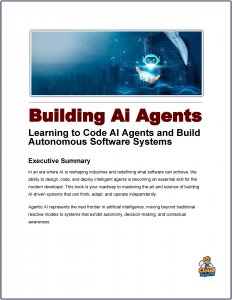Building Agents with Model Context Protocol – Mahesh Murag, Anthropic
This workshop from Anthropic -- the creators of MCP -- talks about the philosophy behind MCP, its impact on the broader ecosystem since launch, and how developers can use it to build context-rich AI apps and agentic experiences.
 A critical component in developing Ai agents is the Model Context Protocol (MCP), a structured framework that enables seamless interaction between AI models, their environments, and external systems.
A critical component in developing Ai agents is the Model Context Protocol (MCP), a structured framework that enables seamless interaction between AI models, their environments, and external systems.
The Model Context Protocol is a standardized interface that facilitates communication and context management between an AI model (typically a large language model or multimodal model) and its operational environment.
MCP defines how an agent maintains, updates, and utilizes contextual information—such as user inputs, environmental states, memory, and external tool outputs—to make informed decisions and generate meaningful responses.
MCP is designed to address key challenges in agent development:
- Contextual Continuity: Maintaining a coherent understanding of the environment across multiple interactions.
- Scalability: Enabling agents to handle complex tasks by integrating with external tools and APIs.
- Modularity: Allowing developers to swap or upgrade models without disrupting the agent’s architecture.
- Interoperability: Ensuring compatibility across different platforms, models, and data formats.
By providing a structured way to manage context, MCP empowers agents to perform tasks ranging from simple question-answering to sophisticated workflows like automated research, task planning, and multi-step problem-solving.
The Model Context Protocol is a cornerstone of modern AI agent development, providing a structured, scalable, and modular framework for building intelligent systems. By carefully designing the Context Store, Context Manager, Model Interface, Tool Integration Layer, and Execution Loop, developers can create agents capable of tackling complex tasks with high accuracy and efficiency.
As AI models and tools continue to evolve, MCP will play an increasingly vital role in enabling the next generation of autonomous agents, from research assistants to industrial automation systems.



